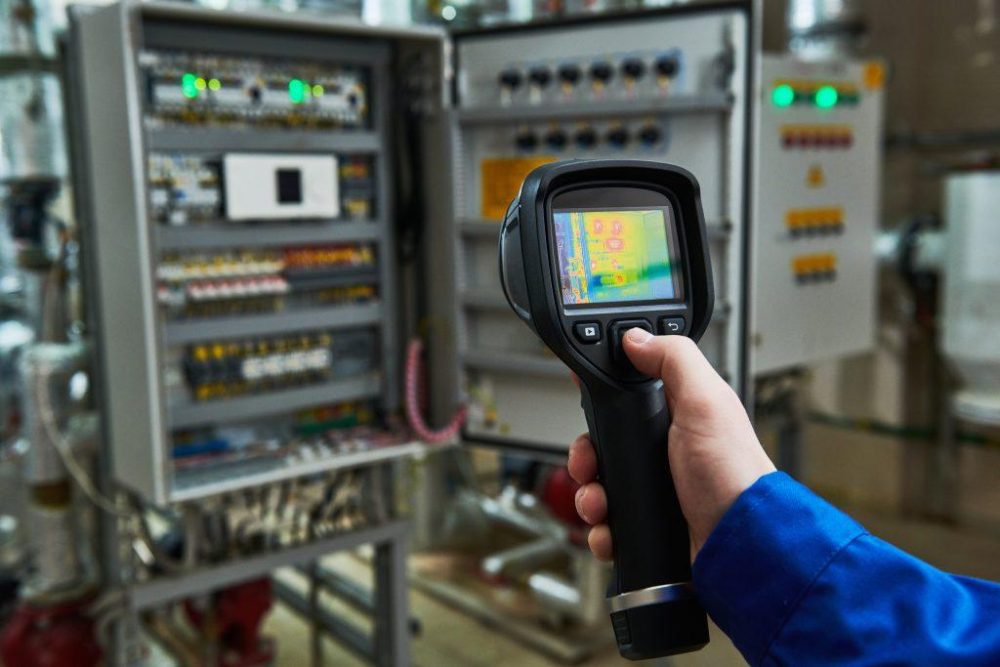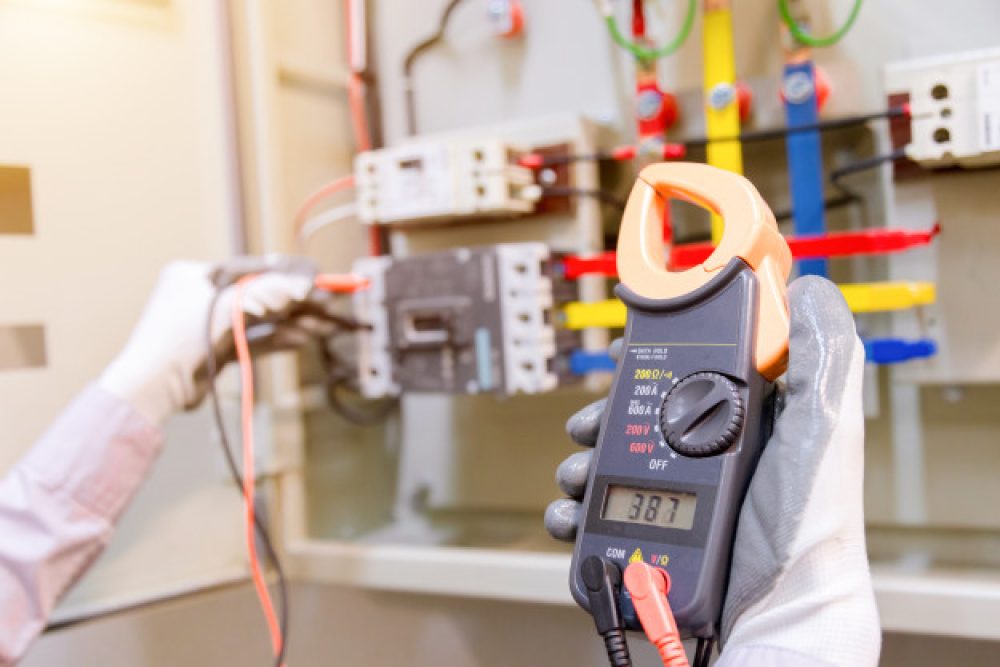Projects
Services
Technical Manpower Services
Ready to optimize and safeguard your premises?
Insulating Industries with Electrical Safety Audit
Electrical safety audits serve as a proactive approach to identifying potential fire hazards within residential, commercial, and industrial environments. These audits involve a comprehensive assessment of electrical systems, wiring, outlets, appliances, and other components to ensure compliance with safety standards and regulations for electrical safety audits in India. By conducting regular audits, property owners can detect and rectify issues before they escalate into full-blown emergencies.


Why electrical audit need
1. Safety Compliance: Electrical safety audits ensure that electrical systems comply with safety regulations and standards. By conducting regular audits, businesses can mitigate the risk of electrical hazards such as shocks, fires, and other safety concerns.
2. Preventive Maintenance: Audits help identify potential issues in electrical systems before they escalate into costly repairs or downtime. By detecting and addressing problems early, businesses can prevent equipment failures and minimize disruptions to operations.
3. Energy Efficiency: Electrical audits help identify opportunities to improve energy efficiency and reduce utility costs. By evaluating the performance of electrical equipment and systems, businesses can implement energy-saving measures such as upgrading to energy-efficient lighting, optimizing HVAC systems, and installing power management solutions.
4. Risk Management: Conducting electrical safety audits helps businesses assess and manage risks associated with electrical systems. By identifying vulnerabilities and implementing appropriate controls, businesses can reduce the likelihood of electrical failures, accidents, and disruptions.
5. Compliance with Industry Standards: Electrical safety audits ensure that electrical systems adhere to industry standards and best practices. Compliance with standards such as the National Electrical Code (NEC) ensures the safe design, installation, and operation of electrical systems, protecting both personnel and property. An electrical safety audit checklist can be used for this purpose.
6. Insurance Requirements: Many insurance providers require businesses to conduct regular electrical safety audits as part of their risk management protocols. By demonstrating compliance with safety standards and best practices, businesses can reduce insurance premiums and minimize liability risks associated with electrical incidents.
7. Asset Management: Electrical safety audits provide valuable insights into the condition and performance of electrical assets. By maintaining accurate records of equipment, conducting regular inspections, and tracking maintenance activities, businesses can optimize asset lifecycle management and maximize return on investment.
8. Legal Compliance: Compliance with electrical safety regulations and standards is a legal requirement in many jurisdictions. Conducting regular electrical audits helps businesses demonstrate due diligence and regulatory compliance, reducing the risk of fines, penalties, and legal liabilities associated with non-compliance.
Key Components of an Electrical Safety Audit
1. Inspection of Wiring: One of the primary areas of focus during an electrical safety audit is the inspection of wiring systems. This includes assessing the condition of wiring, identifying any signs of wear or damage, and verifying compliance with electrical codes and standards.
2. Circuit Overload Analysis: Overloaded circuits represent a common cause of electrical fires. Auditors examine the load capacity of circuits and identify instances of overloading, which can lead to overheating and ignition.
3. Appliance and Equipment Evaluation: Faulty appliances and equipment can pose a significant fire risk. Auditors inspect electrical appliances, power outlets, and other devices for signs of malfunction, ensuring that they are properly grounded and installed according to manufacturer specifications.
4. Grounding and Bonding Verification: Proper grounding and bonding are essential for electrical safety. Auditors verify that electrical systems are effectively grounded and bonded to prevent the buildup of excess voltage and mitigate the risk of electrical shock and fire.
5. Fire Protection Measures: In addition to assessing electrical systems, auditors may also evaluate the effectiveness of fire protection measures, including smoke detectors, fire alarms, and suppression systems.
